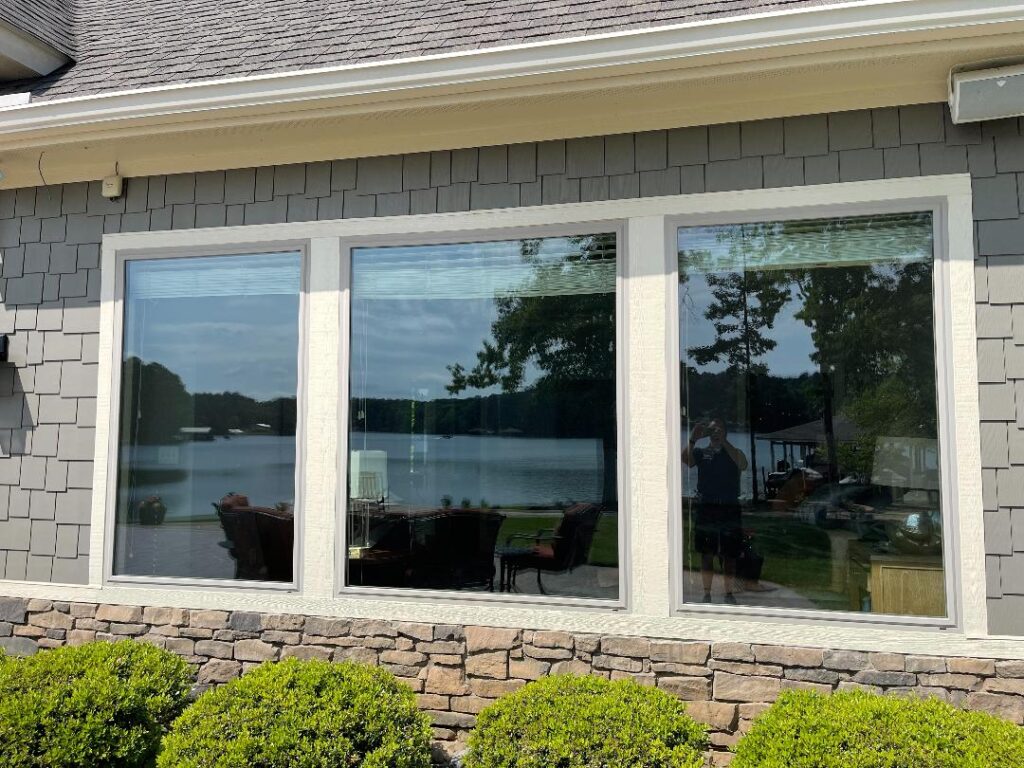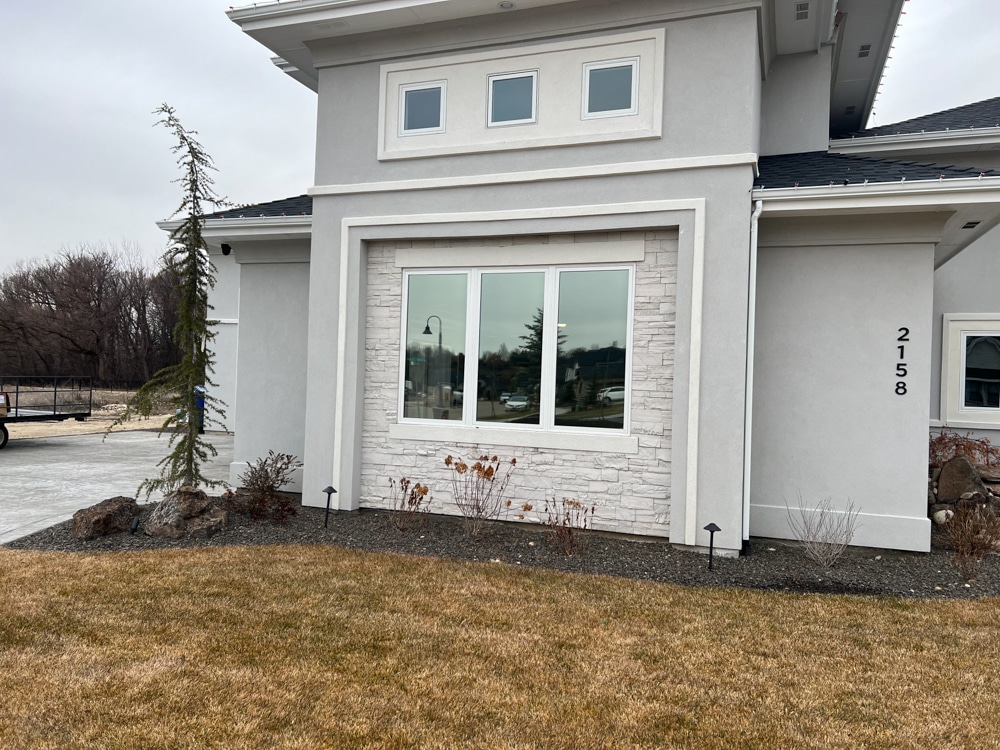Residential Window Tint: Improve Privacy and Design in Your Home
Residential Window Tint: Improve Privacy and Design in Your Home
Blog Article
Just How Residential Window Tinting Boosts Your Home's Energy Efficiency
Residential window tinting provides a compelling remedy for house owners seeking to boost energy performance within their space. By using specialized films to windows, it effectively minimizes heat transfer, therefore stabilizing interior temperature levels and decreasing the need for too much home heating or air conditioning. This not just reduces power consumption however likewise offers an extra comfortable atmosphere by alleviating glare. Comprehending the subtleties of how tinting works and picking the suitable kind for your home can be crucial. Curiously, what elements should one consider prior to making this investment?
Comprehending Window Tinting
Comprehending window tinting is necessary for home owners looking for to enhance both comfort and energy efficiency in their home. Residential Window Tint. Window tinting involves the application of a thin film to the interior or exterior surface of glass home windows. This film can significantly regulate the quantity of sunshine and warm that goes into a home, hence affecting interior climate conditions
There are various types of window tinting movies offered, each with distinct residential or commercial properties. The effectiveness of window tinting is often gauged by its Visible Light Transmission (VLT) portion, which shows exactly how much light can pass through the movie.
Advantages of Energy Effectiveness
Window tinting not just enhances visual appeals however additionally plays a substantial role in boosting energy effectiveness within property rooms. By minimizing warm transfer via windows, tinted movies create a much more stable indoor climate, which can bring about considerable decreases in energy usage for heating & cooling. This energy effectiveness converts into lower energy bills, supplying house owners with substantial lasting savings.

Additionally, home window tinting improves the comfort of living rooms. By reducing glow and obstructing damaging UV rays, tinted windows create a more pleasant environment, which can result in improved wellness for residents. The protection versus UV rays likewise helps maintain furnishings and flooring from fading, contributing to the long life of family things.
Just How Tinting Functions
Tinting movies operate with a combination of innovative materials and modern technologies made to manage the amount of solar power entering a home. Mainly made up of polyester, these films often incorporate metallic or ceramic particles that absorb and reflect warm. This double capability allows them to significantly decrease the penetration of ultraviolet (UV) rays and infrared radiation while permitting visible light to travel through.
The effectiveness of window tinting is gauged by its solar heat gain coefficient (SHGC), which indicates just how much solar power is transmitted via the home window. Lower SHGC values are more effective as they represent better heat denial. In addition, home window tints can include a range of tones, allowing house owners to tailor their aesthetic choices while enhancing power efficiency.
Furthermore, these movies serve as an obstacle, preventing heat loss during colder months by reflecting indoor warmth back into the Website space. This thermal insulation result enhances the air conditioning advantages acquired during warmer months, contributing to a balanced interior environment year-round. By handling solar power properly, domestic home window tinting not just boosts convenience however likewise plays a like it crucial function in lowering energy consumption and decreasing energy bills.
Picking the Right Color

There are different kinds of home window films offered, consisting of colored, metalized, and ceramic. Colored movies are economical but may have limited sturdiness. Metalized movies use much better warm being rejected yet can hinder digital signals. Ceramic movies supply superb warm control without jeopardizing visibility and are very sturdy, making them a prominent option.
Noticeable light transmission (VLT) is one more essential aspect, as it suggests the amount of all-natural light that can pass via the colored glass. Homeowners must select a tint with a VLT that complements their lights choices while still offering sufficient glare decrease.
Furthermore, analyzing the solar warmth gain coefficient (SHGC) can aid identify just how well a tint can block warmth from sunshine. A reduced SHGC indicates better warmth control, inevitably enhancing power effectiveness.
Installment and Upkeep Tips
Appropriate installment and upkeep are crucial elements in making the most of the advantages of household home window tinting. To accomplish optimal results, it is a good idea to employ a More Help qualified specialist for setup. This guarantees that the tint is applied correctly, avoiding air bubbles, creases, or misalignment that can jeopardize performance. Experts also use specialized devices and strategies, which can boost the resilience and performance of the color.
Following setup, upkeep is important to extend the life of the window movie. It is advised to wait at least 30 days before cleaning up the tinted home windows to enable the glue to cure fully.
Furthermore, normal examinations are beneficial. Look for any peeling or bubbling, which can suggest incorrect setup or put on with time - Residential Window Tint. Addressing these concerns without delay can prevent further damages and keep energy effectiveness. By adhering to these setup and maintenance suggestions, house owners can ensure their window tinting remains to offer considerable energy cost savings and comfort for years to find.
Verdict
Finally, household home window tinting serves as an effective solution for boosting power effectiveness within homes. By minimizing heat transfer and obstructing harmful UV rays, home window films add to reduce energy intake and enhanced interior comfort. The option of appropriate tinting products, together with proper installment and maintenance, additionally optimizes these benefits. Inevitably, window tinting stands for a sustainable financial investment that not only lowers energy expenses yet also advertises a comfy living atmosphere throughout the year.
Window tinting entails the application of a slim movie to the interior or exterior surface area of glass windows. By reducing warm transfer via home windows, tinted films produce a more steady interior environment, which can lead to significant reductions in power intake for home heating and cooling.The efficiency of window tinting is determined by its solar warmth gain coefficient (SHGC), which shows how much solar power is transmitted with the home window. By taking care of solar power effectively, domestic window tinting not only enhances comfort but likewise plays a crucial duty in reducing energy consumption and lowering utility bills.
By reducing warmth transfer and blocking damaging UV rays, window films contribute to lower energy consumption and improved indoor comfort.
Report this page